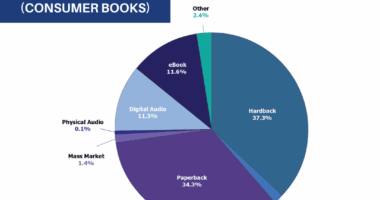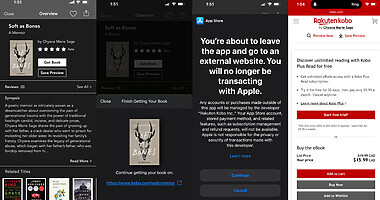
Be careful not to linger too long on the sexy parts of books like Fifty Shades of Grey. GoodeReader reported last week on a Wall Street Journal article that demonstrated how ebook retailers like Amazon, Barnes and Noble, and Kobo, among others, can now access more intrusive statistical information on how consumers read. This data, ranging from the obvious things like titles purchased to the more obscure data on how long consumers read certain passages, how much time was spent interacting with different sections of books, and how much of a book was finished, can be used for very real world information gathering.
The plus side to this invasion of reading privacy—if there is a benefit to be found—is that retailers are sharing this data with publishers. Ideally, that will translate into better books, since publishers will have access to a page-by-page break down of what consumers choose to spend their time interacting with.
On the other hand, how far does this information go? Does it stop with just the publishers, or can it be used against the consumers? One state has already put through legislation to protect readers from having the data on their reading habits turned over to law enforcement agencies without a court order. This legislation would protect individuals from the very real threat of being profiled or investigated for crimes based on the taboo subject matters they like to read.
Todd Humphrey of Kobo spoke to The Guardian about the rising concerns over a digital invasion of readers’ privacy:
“We are just starting out on this and we want to be cautious on privacy…. We want to understand how people are engaging in the content, but not to cross the line where we are sharing information about their reading habits which they wouldn’t approve of. So we are looking in bulk – at a particular book or genre – and feeding that back to publishers.”
Hopefully, the worst thing to come from this data collection would be a stab at the artistry of writing, where publishers only take on projects that meet the guidelines of the latest reports on digital reading or where authors feel pressured to adapt their plots lines and characters to the latest figures on what readers want. But the reality is, the worst thing to come from intrusive data collection could be far more detrimental to the individual readers.
Mercy Pilkington is a Senior Editor for Good e-Reader. She is also the CEO and founder of a hybrid publishing and consulting company.




